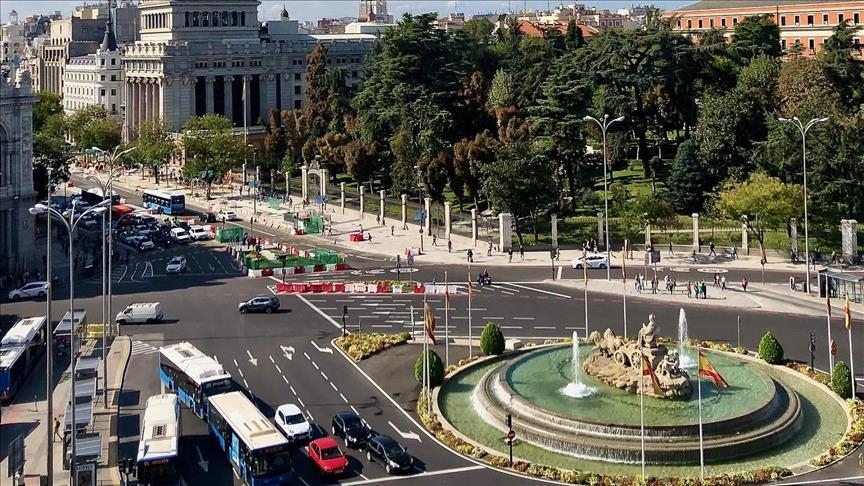
OVIEDO, Spain
Electricity use in Spain dropped by 3.7% in the first week of the country's new energy-saving measures, Environment Minister Teresa Ribera said on Wednesday.
According to Ribera, even though Spain was faced with sweltering temperatures that usually lead to a surge in electricity demand, consumers used significantly less energy on Aug. 8-14 compared to the week before.
Under the new measures, air conditioning in public buildings, cultural venues, hotels, movie theaters, large stores, and transportation stations could no longer be set to below 27 C (80.6 F).
In the winter, heating in the same buildings would also need to remain below 19 C (66.2 F).
Public buildings and shops were also required to turn off their lights after 10 p.m. as part of the measures aiming to make Spain and the EU less dependent on imported natural gas as winter looms and Russia threatens to cut off supplies.
"We are going to be in a position to respond together to Putin's energy blackmail," Ribera said at a press conference.
While most EU countries have vowed to cut their gas use by 15%, Spain and Portugal agreed to just 7% reductions, arguing that they have few energy connections with other bloc members and are not heavily reliant on Russian gas.
Spain's measures, which also introduces more building inspections, increased remote working, and will force buildings to keep doors closed from late September, will be in effect until November 2023.
Despite the achievements in energy use reduction, these new measures have not come without controversy.
"It's a direct attack on shopkeepers, hospitality and tourism. Having cities like Madrid with their display window lights turned off makes it less attractive to go out, which in turn means that people will spend less," Madrid's Economic Minister Javier Fernandez-Lasquetty told reporters on Tuesday.
Dozens more in the tourism and hospitality sector have also complained that air conditioning at 27 C would simply be too hot to keep guests comfortable.
However, this week the energy minister for the touristic Balearic Islands, Juan Pedro Yllanes, said he does not expect the measures to impact the hospitality sector.
"The majority of our tourists come from northern Europe and have already internalized the idea that there will be an energy crisis in the fall. These measures won't surprise them or have any effect on their vacation activity," he said.









